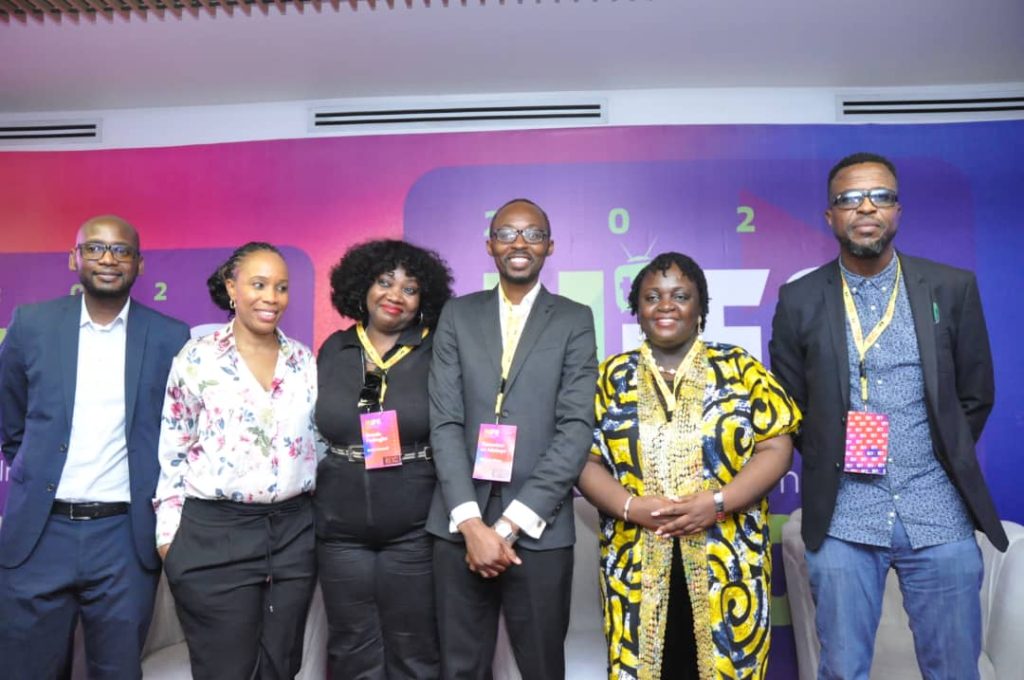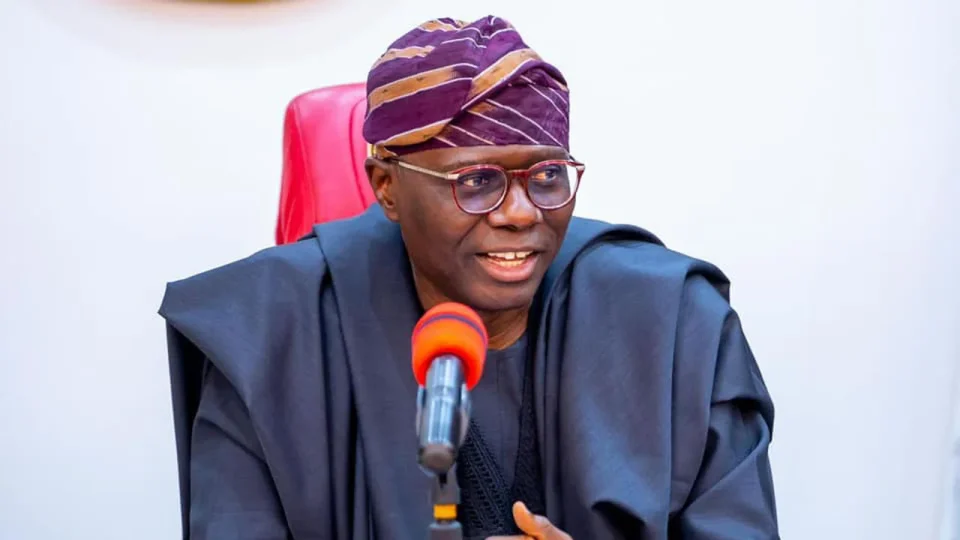The Lagos State Governor, Mr. Babajide Olusola Sanwo-Olu, has commended the organisers of the Nigerian International Film and TV Summit for their commitment to the development of the Creative Industry, particularly Film and TV, in Nigeria and globally. He spoke at the opening of the 2024 Summit held at the Legend Hotel, Ikeja, Lagos.
The Governor who was represented by Mrs. Adebukola Agbaminoja, Executive Secretary, Lagos State Film, Video, and Censor Board, said that the Summit was an important event that brings together diverse and talented group of individuals who share a passion for storytelling and the art of visual communication. “Your presence here signifies the importance of our collective efforts in shaping the future of film and television, not just in Nigeria, but across the globe. He added that, “Lagos is not just a city; it is a melting pot of cultures, ideas, and talents. It is a place where narratives take flight, and where the magic of cinema thrives.”

The Governor expressed the government’s commitment to fostering an environment that nurtures talents, supports innovation, and encourages collaboration. He said that the Lagos State Government has initiated various programmes aimed at empowering filmmakers, providing grants, and investing in state-of-the-art facilities. “We believe that by investing in our creatives, we are investing in the future of our economy and our culture.”
He urged the stakeholders in the film and TV industry to embrace collaboration and innovation. “Let us harness technology and new platforms to reach wider audiences and create content that resonates with people from all walks of life. Together we can elevate our industry to new heights and showcase the richness of our narratives to the world.” He added that, The Lagos Government stands ready to partner with you, listen to your needs, and to celebrate your successes. Let us work hand in hand to create a thriving ecosystem for film and television in Lagos and beyond.”
In her opening remarks, Onah reaffirmed her dedication to the Summit’s mission of fostering collaboration, innovation, and growth in the Nigerian film and TV sector. “Our goal with NIFS has always been to provide a platform for industry practitioners to exchange ideas, develop partnerships, and discover new opportunities for growth,” Onah said. “We are committed to ensuring that this Summit continues to be a cornerstone for industry development in Nigeria, and in fact, globally”
One important milestone, among others, of this year’s Summit is our deliberate effort to involve our colleagues and partners from Ghana. “As you know, Ghana is our natural neighbour and we share so many things in common including our cultural heritage and other values that bind us together.”
The first day of the Summit was packed with insightful discussions and speeches from key industry figures, academics, and policy makers. Onah says that, “Today’s discussions have been enriching, offering fresh perspectives and practical solutions. NIFS is committed to fostering an environment where ideas flourish and collaborations are born,” she said.
The Ghanian Minister of Tourism, Arts, and Culture, Hon. Andrew Egyapa Mercer, applauded the organisers of the 2024 Summit for their resilience and steadfastness over the years. He expressed his heartfelt appreciation for the invitation to be at the event and the opportunity to present Ghana perspectives of the film industry to Nigerians; and called for robust partnership between his country and Nigeria in the development of the film industry in both countries.
For him, the gathering of the leading stars of the film industry in Nigeria – a city that resonates with the vibrant hub of Africa’s creative industry – and across the world is a testament to the robust creative spirit of our continent.
Speaking further, he said, “Today, we convene not just as representatives of our individual nations but as custodians of a shared cultural heritage, a heritage that has the power to transcend borders, influence global narratives, and foster unity across our great continent.
African cinema has come a long way, evolving from local storytelling traditions to becoming a force on the global stage. Our stories are now being told not just in our languages, but in the universal language of film—a language that is understood and appreciated by people from all walks of life. Nigerian cinema, popularly known as Nollywood, has led this charge with its prolific output, creativity, and resilience, making it the second-largest film industry in the world.”
He advocates for a Nigeria and Ghana partnership in film development and advancement of the film and TV industries to drive economic growth, create jobs, and foster cultural exchange which cannot be overstated. But to fully realize this potential, we must embrace collaboration across our borders. Ghana and Nigeria, he said “share a long history of cultural exchange, and our film industries have been intertwined for decades. Many Ghanaian actors have found fame in Nollywood, and vice versa, highlighting the seamless synergy between our two industries. This collaboration must not only continue but also deepen. By working together, we can pool our resources, share our expertise, and collectively push the boundaries of African cinema.
Juliet Yaa Asantewa, CEO, National Film Authority of Ghana, also commended NIFS organisers for their commitment to ensuring the growth and development of the film industry in Nigeria and across the world. She applauded the opportunity being created for a collaboration between Nigeria and Ghana. She said that harnessing the abundant talents that exist between the two countries and other Africa countries will boost not just the industry alone but will boost wealth creation and massive employment opportunities across Africa.
Temitope Moses, CEO, Nile Media Entertainment Group, emphasised the partnership between the two countries. He also raised the issue of official bottlenecks that hinder collaborations across countries like this. He urged the agencies and governments of both countries to create a more enabling business environment for the creative industry to thrive. He also talked about training and development in the industry. “For our industries to thrive, we must invest in talent development and infrastructure. The young, creative minds that drive our film and TV sectors need access to quality training, mentorship, and opportunities. Our governments, in partnership with the private sector, must prioritize the establishment of film schools, production studios, and distribution networks that can support the full value chain of film production and distribution.”
The event attracted a diverse group of participants, including the Ghana Minister for Tourism, Arts, and Culture, Nollywood actors, film producers, marketers, financiers, students, and international personalities and institutions.

